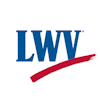Fort Collins Air Quality Advisory Board 07/21/25
by Nanci Wendland
Main Topics
Mark Houdashelt agreed to remain the board Vice Chair.
The Environmental Services Sr. Manager Depew discussed the Our Climate Future (OCF) Refresh project, and sought input from the board on how to integrate air quality strategies and policies into the OCF framework.
Depew reviewed Fort Collins Our Climate Future (OCF) Refresh project. Depew wants to integrate the city’s air quality strategies and policies into the OCF framework. He said Fort Collins is still working from a 2019 revised air quality plan. Some of the objectives and goals of this plan are shown below:
- Reduce Greenhouse gas emissions
- 50% below 2005 baseline by 2026
- 80% below 2005 baseline by 2030
- Carbon neutral by 2050
- 100% Renewable electricity by 2030
- Zero waste, or 100% landfill diversion, by 2030
The purpose of the OCF Refresh project is to make OCF simpler to talk about, more inclusive of the city’s sustainability efforts, and a more useful tool for planning and accountability.
The next steps for the project, according to Depew and his environmental team, are as follows:
- Incorporate input and feedback from staff, community engagement, and OCF executives
- Summarize enhancements to the framework such as,
- Assessment, reporting and storytelling
- Internal alignment and collaboration
- Structure and governance
- Develop an implementation approach for 2026
- Align with the OCF strategic funding plan
- An estimated revenue stream will be approximately $5 million per year for the next 20 years.
- Align with the OCF strategic funding plan
Depew was asked by members of the board how long his team has been working on this and if the framework has changed since 2019. His reply is that it’s difficult to measure small changes such as adding a bike lane to reduce pollution. How do you connect or measure the impact on pollution or planet warming events?
One board member said she believes the progress in Fort Collins has been slow. She said she wants to see things getting done around the city. She said the state has already moved on much of the plan, rapidly evolving without Fort Collins.
Depew said that’s why he is looking to the advisory group for assistance. His team needs to know data gaps and what to put funding into. He said large projects can be easily identified, but using smaller projects could provide simpler, quicker results; however,he said, the city currently has no data, measurements, or reports. Using the bike lane example from above, a board member said the following questions could be asked:
- How many residents are using the new bike lane?
- Based on usage, what would the estimated emissions impact be?
Another board member suggested monitoring vehicles idling at schools as a quick, smaller project. He said the city could be monitoring how long an average vehicle is idling while waiting to drop-off and pick up their student. Then, using the results, determine how the city could manage this better to reduce pollution in school zones.
Several board members agreed that Depew should bring an issue to the board for them to solve and secure funding, instead of using what they characterized as a broad, often vague system of possible solutions to a wide range of issues. Depew replied that he is trying to set up a good foundation so that the Fort Collins City Council can approve projects.
The final comment was to prioritize, set deadlines, and start data monitoring.
The meeting adjourned at approximately 8 p.m.
Next Meeting: Aug. 25, 2025, 5:30 p.m. online Zoom, or in-person at 222 Laporte Avenue, Colorado River Room, Fort Collins, Co
Members’ Present: Chair Dan Welsh, Interim Vice Chair Mark Houdashelt, and board members: Matt Ayers, Adam Schmidt, Michael Johnson, Howard Gebhart, Christina Swope, Michael Cheeseman, and Maria Moore.
Others Present to Note: Environmental Staff Liaison Selina Lujan, Environmental Services Sr. Manager Honore Depew.
Documents:
From the Advisory Board website:
The Air Quality Advisory Board advises the City Council regarding policies, plans, and programs to improve and maintain the City's air quality. The Board may, without limitation, biennially review air quality indicators and recommend adjustments to the Air Quality Action Plan, review and recommend revisions of the Air Quality Policy Plan and advise the Governor-designated lead agency for air quality planning on matters pertaining to the Fort Collins element of the State Implementation Plan. The Board may also convene ad hoc citizen task groups to provide additional technical expertise to the Board. The Board coordinates its work with the Energy Board, Transportation Board, Natural Resources Advisory Board, and the Planning and Zoning Board.
*Citizen Observers further the commitment of the League of Women Voters to its principle of Citizens Right to Know, however, we are not acting as journalists. Omissions and errors are possible. It is assumed that users of this information are responsible for their own fact-checking. This could include contacting a government clerk, conversing with an elected official or staff, and/or asking us to speak to the Observer who attended.
